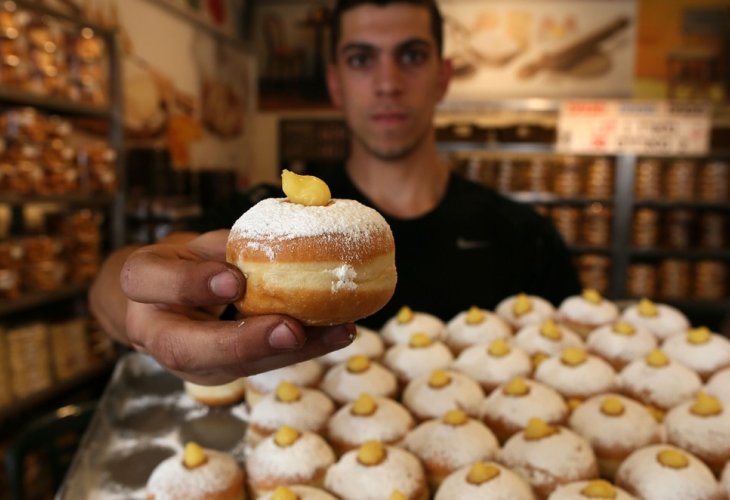Buying Sufganiyot for Chanukah? Important Things You Should Know
Discover why it's crucial to purchase kosher sufganiyot and what to look for when buying dairy versions. Find all the answers in this article.
 (Photo: Flash 90)
(Photo: Flash 90)Chanukah is approaching, and sufganiyot have long been filling the stands of bakeries, pastry shops, and supermarkets. In light of this, the head of the Kashrut Department of the Chief Rabbinate of Israel, Rabbi Pinchas Adiriyah, clarifies to the public regarding sufganiyot in general, and dairy sufganiyot in particular.
"For the preparation of kosher sufganiyot," explains Rabbi Pinchas, "several important points must be addressed, which kashrut supervisors must ensure are implemented."
Rabbi Pinchas details the following points concerning kashrut supervisors:
- Supervisors are requested to ensure that the fryers have undergone proper kosherization and purging, to verify they are not meat utensils or have absorbed prohibited substances.
- Additionally, it must be ensured that the fryer is lit in a way that avoids the issue of bishul akum (food cooked by non-Jews). It's also necessary to check that challah was properly separated from the dough, and that the flour was sifted as required by Jewish law.
- Regarding sufganiyot with dairy fillings, Rabbi Pinchas reminds to ensure that some of the dairy filling is visible on the surface of the sufganiyah, to clearly indicate that these sufganiyot are dairy, distinguishing them from pareve ones. Additionally, it must be clearly stated on a sign that they are dairy, to prevent the public from mistakenly eating them after consuming meat products.
- In any case, there must be separation between dairy sufganiyot and pareve sufganiyot when displayed on trays at the point of sale.
- Furthermore, preparation of sufganiyot with dough containing dairy ingredients should not be permitted, and it must be verified that the type of sufganiyot sold in sales bags correspond to the 'pareve' or 'dairy' designation marked on the bag or packaging as appropriate.
Regarding consumers purchasing sufganiyot, Rabbi Pinchas asks to make sure that the purchased sufganiyot come from bakeries and pastry shops properly supervised by local rabbinates, to avoid fraud by unsupervised producers. Due to the points detailed above, it is very important to ensure that sufganiyot are produced in a kosher and supervised manner.
The Kashrut Division of the Chief Rabbinate of Israel with a kashrut update for the public, click here.

